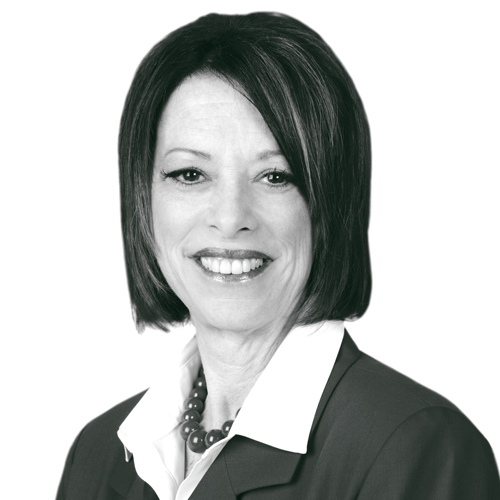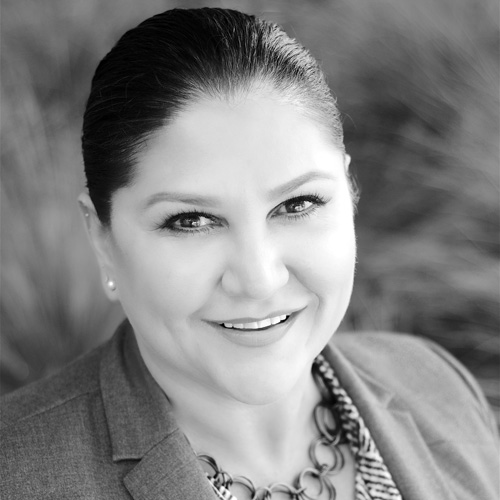Joe Machicote was a student worker in the dishwashing room at Manhattanville College when his boss called him into his office and asked, “Do you realize how important you are to this organization?” Machicote was confused—after all, he was only a dishwasher. “You don’t realize it, but your job is where everything starts,” his boss said.
Since then, Machicote’s career has been driven by the desire to inspire his colleagues. By the time he left college, Machicote was a student manager with Compass Group, the company that provided Manhattanville’s dining services. After two years at Stouffer Hotels, Compass Group asked Machicote to become its director of dining services, where he shared his former boss’s insight with each employee. His efforts didn’t go unnoticed. Soon, the company’s president asked Machicote to transition into human resources as a training manager.
That was twenty-five years ago. Now, Machicote is senior vice president of human resources at Erickson Living, which operates nineteen senior living communities in eleven states. Machicote and the human resources team’s goal is not only to attract and retain strong employees, but to build a community where employees can thrive. “We want to help people truly find a home once they get here,” he says.
Erickson Living fosters a culture of growth through initiatives such as Erickson Living University (ELU). ELU is a blended learning environment that provides both mandatory compliance trainings and supplemental development opportunities. Employees can chose from 750 courses in twenty-nine languages, including leadership, healthcare, and computer courses.

ELU’s framework offers a clear structure for employees, with various courses of study to choose from and achievement markers along the way. Career planning courses help employees envision their future within the company, and trainings help them gain the necessary skills. For inspiration, Machicote’s team is creating career profiles to highlight individuals who have grown with the company.
Educational opportunities don’t just develop employees—they also attract them. According to Gallup’s 2016 report “How Millennials Want to Work and Live,” 87 percent of millennials say development and career growth opportunities are important in a job. This is a significant increase from the 69 percent of nonmillennials who say the same, but Machicote believes there is more to the story than the numbers show. While nonmillennials might rank other considerations, such as compensation, above development opportunities, growth still matters. “We’re developing growth opportunities with everyone in mind,” Machicote says. “We’re providing it in such a way that you can choose your own order.”
Millennials aren’t the youngest employees at Erickson Living—some waitstaff join as early as high school. “The seniors love it,” Machicote explains. “They build unbelievable connections to the high school students.” High school employees benefit not only from connections with residents, but also from the opportunities Erickson Living provides. The company offers a college scholarship to high school employees who work a certain number of hours, and it is developing ELU programs for high school employees to envision a future in senior living. These students will attend college as Erickson Ambassadors and have a job at Erickson Living waiting for them upon graduation. “ELU is really a great platform that opens a lot of doors to everybody in every single generation,” Machicote says.
Erickson Living has also partnered with the University of Maryland, Baltimore County to create the Erickson School of Aging. Students can earn a certificate, bachelor’s, or master’s degree in Management of Aging Services, which will prepare them to begin or further their careers in the senior living industry. “No matter where you are in your career, there’s something for you to be able to seize the opportunity to learn and grow,” Machicote says.
“We’re looking for heroes. Somebody who’s going to come in and make a significant difference in somebody else’s life.”
Along with a culture of growth, Machicote fosters a culture of appreciation through his philosophy of inspirational human resources. “We’re all doing something for a much, much bigger cause, and that cause is serving others,” he says. In an effort to recognize the most inspirational employees, the human resources and marketing departments collaborated to create the Everyday Heroes campaign. They distilled the company’s philosophy, The Erickson Way, into a one-sentence call to action: living our values, one interaction at a time. This saying applies to situations large and small, from washing a dish to building a relationship. “We’re looking for heroes,” Machicote explains. “Somebody who’s going to come in and make a significant difference in somebody else’s life.”
Each of the organization’s nineteen communities already recognized meaningful interactions in their own ways, such as the Mission Moments program, which tells the stories of people—employees or residents—who impact each other’s lives. Everyday Heroes will combine the spirit of these programs and expand the celebration across the organization. “Many employees like the idea of being recognized globally for just doing something that they would do every day without even thinking about it,” Machicote says. “We’re really trying to build a culture of appreciation where people are recognized for living our values, one interaction at a time.”
Machicote’s inspirational human resources philosophy extends all the way from high school waitstaff to senior leadership. He encourages the company’s leaders to consider how their colleagues perceive them and to give each other feedback based on their perceptions. The leaders quickly realized how impactful this feedback could be.
“I do believe in the old adage, ‘Most people will leave their leaders, not the company,’” says Machicote. “Human resources starts with great people. If you’ve got great people, great things are going to happen.”


